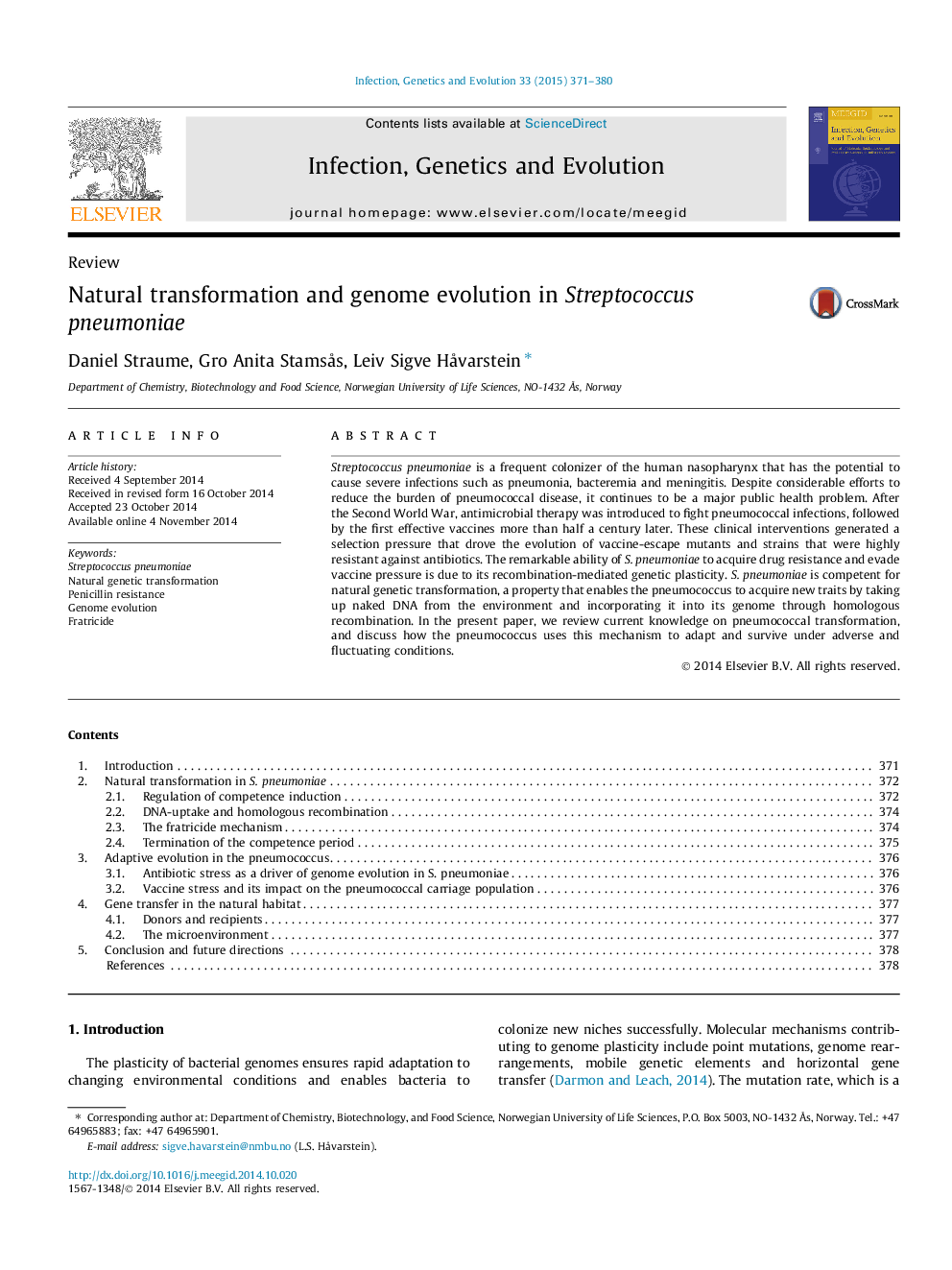| Article ID | Journal | Published Year | Pages | File Type |
|---|---|---|---|---|
| 5908941 | Infection, Genetics and Evolution | 2015 | 10 Pages |
â¢Review current knowledge on natural transformation in Streptococcus pneumoniae.â¢Discuss the role of a DNA-acquisition mechanism termed fratricide.â¢Discuss the ecology of natural transformation, the least known part of the process.â¢Discuss how external stress drives genome evolution in S. pneumoniae.
Streptococcus pneumoniae is a frequent colonizer of the human nasopharynx that has the potential to cause severe infections such as pneumonia, bacteremia and meningitis. Despite considerable efforts to reduce the burden of pneumococcal disease, it continues to be a major public health problem. After the Second World War, antimicrobial therapy was introduced to fight pneumococcal infections, followed by the first effective vaccines more than half a century later. These clinical interventions generated a selection pressure that drove the evolution of vaccine-escape mutants and strains that were highly resistant against antibiotics. The remarkable ability of S. pneumoniae to acquire drug resistance and evade vaccine pressure is due to its recombination-mediated genetic plasticity. S. pneumoniae is competent for natural genetic transformation, a property that enables the pneumococcus to acquire new traits by taking up naked DNA from the environment and incorporating it into its genome through homologous recombination. In the present paper, we review current knowledge on pneumococcal transformation, and discuss how the pneumococcus uses this mechanism to adapt and survive under adverse and fluctuating conditions.
